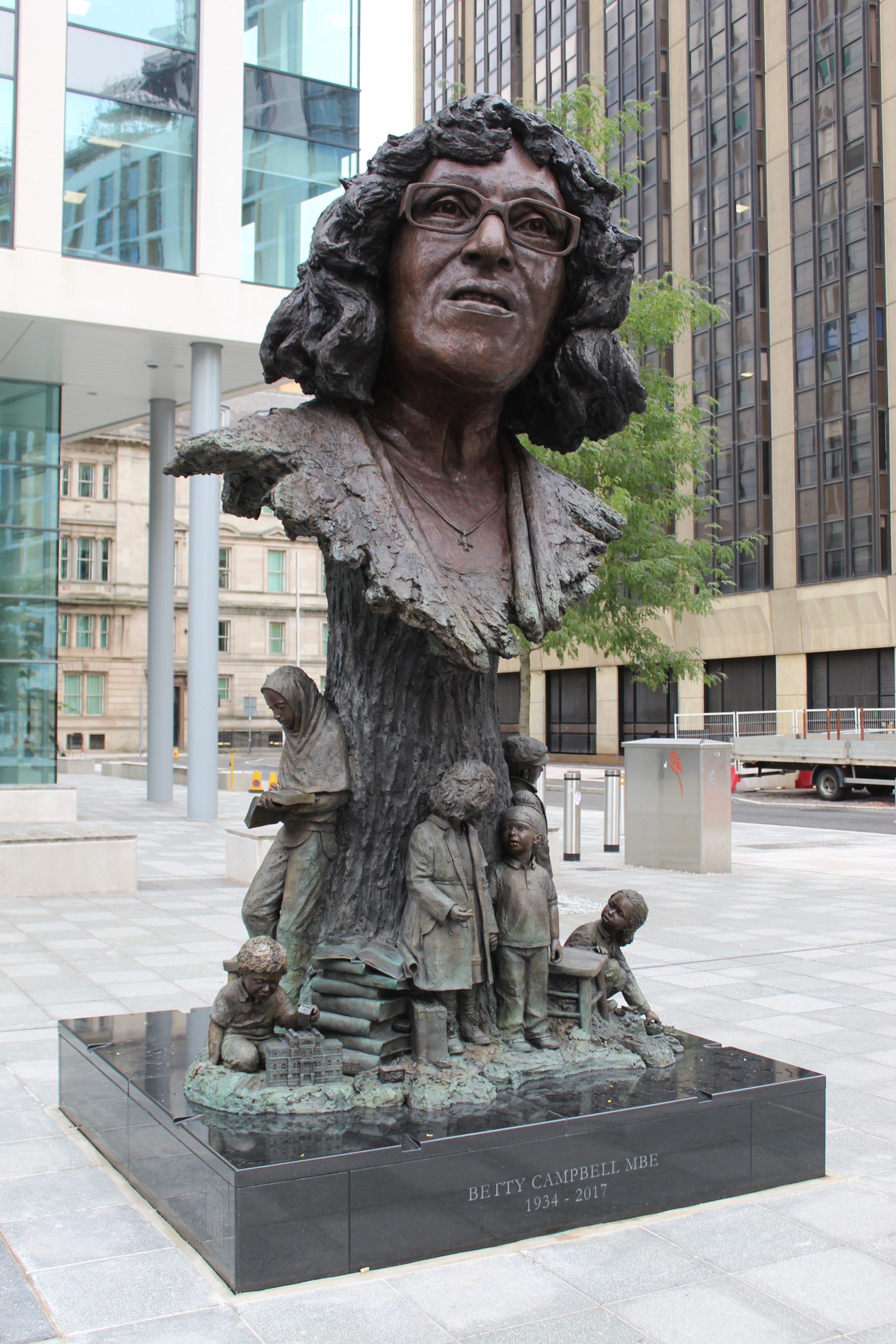Rachel Elizabeth “Betty” Campbell MBE was Wales’ first black headteacher and a well-known community activist.
 14GTR, CC BY-SA 4.0
14GTR, CC BY-SA 4.0 Betty’s father emigrated from Jamaica when he was 15 years old, settling in Cardiff with Betty’s mother, a Welsh Barbadian, and giving birth to Betty in 1934. After her husband was killed in the Second World War, Betty’s mother really struggled financially. Despite coming from a lower-income family, Betty excelled in all of her studies and was awarded a scholarship to the Lady Margaret High School for Girls. Despite her aspiration to become a teacher, she was constantly discouraged by her own teacher. She was told that if she became a teacher as a working-class Black female, the problems would be “insurmountable.” She noted, “that was the first time I ever cried in school. But it made me more determined; I was going to be a teacher by hook or by crook.” Betty became pregnant while studying for her A-Levels at the age of 17. In 1953, she left school and got married. Campbell enrolled at Cardiff Teacher Training College after having three children and was one of only six female students accepted. Betty Campbell became the headteacher of Mount Stuart after 28 years of teaching. Following a trip to the United States, she was inspired by anti-slavery activists and began teaching her schoolchildren about slavery and South Africa’s apartheid regime. In the UK, Black History Month may be traced back to her endeavours in the 1970s. She was invited to meet Nelson Mandela on his only visit to Wales in 1998 as a member of the Commission for Racial Equality. Betty Campbell died at the age of 82, after years of advocacy and leadership. It was announced on the 18th of January 2019 that a statue of Campbell would be installed outside the BBC Wales headquarters. Due to delays caused by COVID-19, this was unveiled on September 29, 2021.
